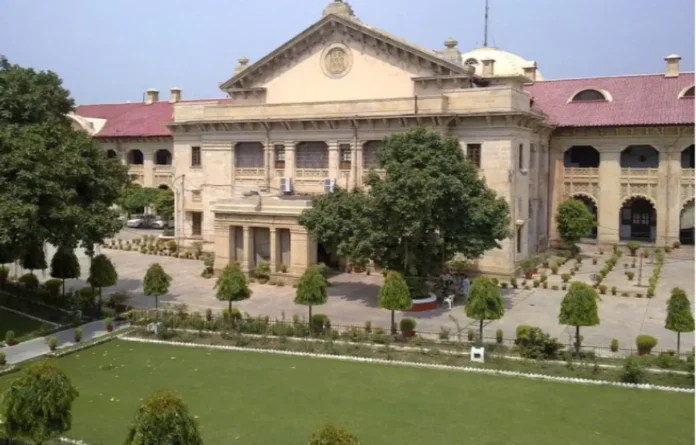The Allahabad High Court has dismissed a petition of an association styled as Anjuman Himayat Chaparsian Sangh, UP (Nyay Bhibhag), seeking a direction to judicial officers of the civil courts to not extract work from Class IV employees of civil court as domestic servants for their personal work except during official hours.
The petition has been filed by an association styled as Anjuman Himayat Chaparsian Sangh, UP (Nyay Bhibhag), Lucknow stating that membership of the petitioner association is of class IV employees working in civil courts of State of UP and the object of the association includes espousal of grievance of its members pertaining to service matter.
It has further been submitted that conditions of service and salary to class IV employees is governed by Uttar Pradesh District court Service Rules, 2013 and the members of the petitioner- association who are working in District Courts are being forced to work at the residences of judicial officers and consequently have preferred the petition with prayer for a direction to the judicial officers of the civil courts to not take work from Class IV employees of civil court as a domestic servant for their personal work except to official time.
Gaurav Mehrotra, appearing for High Court, has raised a preliminary objection with regard to maintainability of the writ petition.
He submitted that the petition has been filed by an association. Whether the said association can file and maintain the writ petition for the benefit of its workers was subjected to consideration before the Full Bench of the Court in the case of Umesh Chand Vinod Kumar and others Vs Krishi Utpadan Mandi Samiti, Bharthana and another.
In support of his submissions he has submitted that according to the petitioner the members of the petitioner association are class IV employees working in district courts and in case there are any allegations of being forced to work at the residence, it can be raised individually by such persons and it is not the case that all the members are being forced to work at the residences.
He further submitted that a perusal of the bye laws which has been annexed by the petitioner, would indicate that the associations is not authorized to take recourse to legal proceedings to redress the grievance of its members and and even if any resolution is passed authorizing certain persons to file a writ petition the same would be unauthorized act as per the bye laws of the petitioner association and consequently submits that for the aforesaid reasons the writ petition would not be maintainable.
Anil Kumar Pandey, appearing for the petitioners, does not dispute the fact that the persons who are aggrieved by the act that they are forced to work at the residences of judicial officers are not incapacitated in any manner whatsoever to approach any forum or court of competent jurisdiction for redressal of their grievances and there is no reason given in the nor submitted by the petitioner as to why individual members cannot approach the Court for redressal of his grievance.
The Court observed that,
Apart from the above, a perusal of the bye laws clearly indicates that the object of the association includes taking action for getting better service conditions etc but clearly did not provide to take recourse of legal proceedings on behalf of its members and in absence of such authorization the petition is not maintainable under the bye-laws.
In view of the above, it is clear that though the petitioner denies that he has filed the petition in the style of public interest which cannot be maintained by the petitioner for the benefits of its members. Apart from the above, when a pointed query was made to the petitioner as to why the judicial officers cannot be assisted by the staff where apart from the court work, writing of judgments and perusal of files takes place at the residence of a judge, to which he did not have any answer.
Gaurav Mehrotra, Counsel for the respondents, has further submitted that facilities are provided to the judicial officers and it is class IV employees who carry file and other material from the courts to the residences and vice versa and, in fact, they assist the judicial officers in dispensation of justice and this cannot be said to be a forced labour or taking any work beyond the prescribed duties.
For the aforesaid reasons, the Court found that the petition is not maintainable and accordingly dismissed by the High Court.


